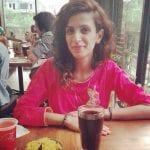Transgender And Islam: A Visit To Pesentran Al Fatah In Indonesia
Most transgenders live life on a day to day basis, without thinking much of how they fit into the world. With limited professions they can enter and no employment opportunities, they are kept on the outskirts of their communities, denied political rights and safe sanction in the state’s religious institutions.
In Yogyakarta, Indonesia, the transgender community have created a safe haven for their people in the shape of an organisation called the Pesantran Al Fatah. Otherwise known as the Islamic Study Group for Transvestite/Transgender Community, the Pesantran consists of 35 members ranging from ages of 25 to over 50 years of age. It was my sheer curiosity which made me visit this particular organization but a part of the reason was also to see the difference perspective of this community and how it differs from the community in Pakistan. Another reason for the visit was to see how the transgender community’s expression of faith reconciles with Islam.

Shinta Ratri, Chairperson
As we reached the organization, we were welcomed by Shinta Ratri, Chairperson and Yunisara who serves as the General Secretary. We were informed that the organization was formed after a destructive earthquake in 2006 which displaced many people from their home. We were told that after any disaster, people have a need to affiliate closer to their religion and as a result of that, this community was established to facilitate the needs and interests of this transgender community and provide them a space to worship and study their religion. The core belief of this group is that as human beings they have the right to pray and have faith and needed a secure place for this. Since then, it has been functioning as a center where the transgender community comes to learn about the Holy Quran and practice their religion.
The organization has no formal curriculum focuses on teachings of the Holy Quran. Their activities involve routine activities also involves prayer and lectures on the religious teachings of Islam. For special occasions such as Eid days, the group organizes charity work for others in need. One of the things that left an impression on me was that as a result of the peaceful activities of the group, non-Muslim members have also joined the group, supported the activities and have taken away the positive message of the teachings. The Pesantran offers them a place for prayer as one of their biggest struggles was to find a place for worship, as mosques did not allow them and were bullied into leaving the premises.
As we spoke to the different members of the group of the group, we learned that acceptance from their families was not the biggest issue for the members as most of them still lived with their family and worked full-time as cooks, makeup artists and street musicians.

Members of the Group
One of the major grievances expressed by this community was that the government of Indonesia does not recognize them as a third gender and it was their desire to be recognized in their country, as they are recognized in Pakistan. Regarding this, I gave them a brief background that in 2011, the Pakistani government gave transgender people the right to vote and to attain a National Identity Card (NIC) of their own, a right that had been denied to them for the past 64 years. However, this is only a small fraction of what is essentially needed in our society at the moment and there are still many hindrances they face. A mere identity card has not been able to provide these individuals with the rights they deserve. The transgender community in Pakistan is still not streamlined into the society and shunned upon. If they apply for any serious white-collar position, they are often made subject to mockery. During the elections of 2013, Bindiya Rani, the President of the Gender Interactive Alliance (GIA), an organisation working for the rights as well as social justice for the transgender community in Pakistan, contested from PS-115 in Karachi. It was appalling to see that the news of a person from the transgender community running in the elections was greeted with general ridicule.
The Pesantran has given this transgender community a place where they are accepted and where they can have the freedom to practice their faith in a nurturing and safe environment. It is my hope that Pesantran continues to grow in strength and find the recognition they seek and deserve to have. They play an active part in promoting the Indonesian culture through performance arts.

Me with members of the Pesantran Al Fatah before their performance

Nashwa Shakeel holds a Bachelor’s degree in International Relations from Bahria University. She has an interest in American politics, and has been working on social issues including right to education for all. Currently, she serves as Admissions and Communications Officer at TMUC


